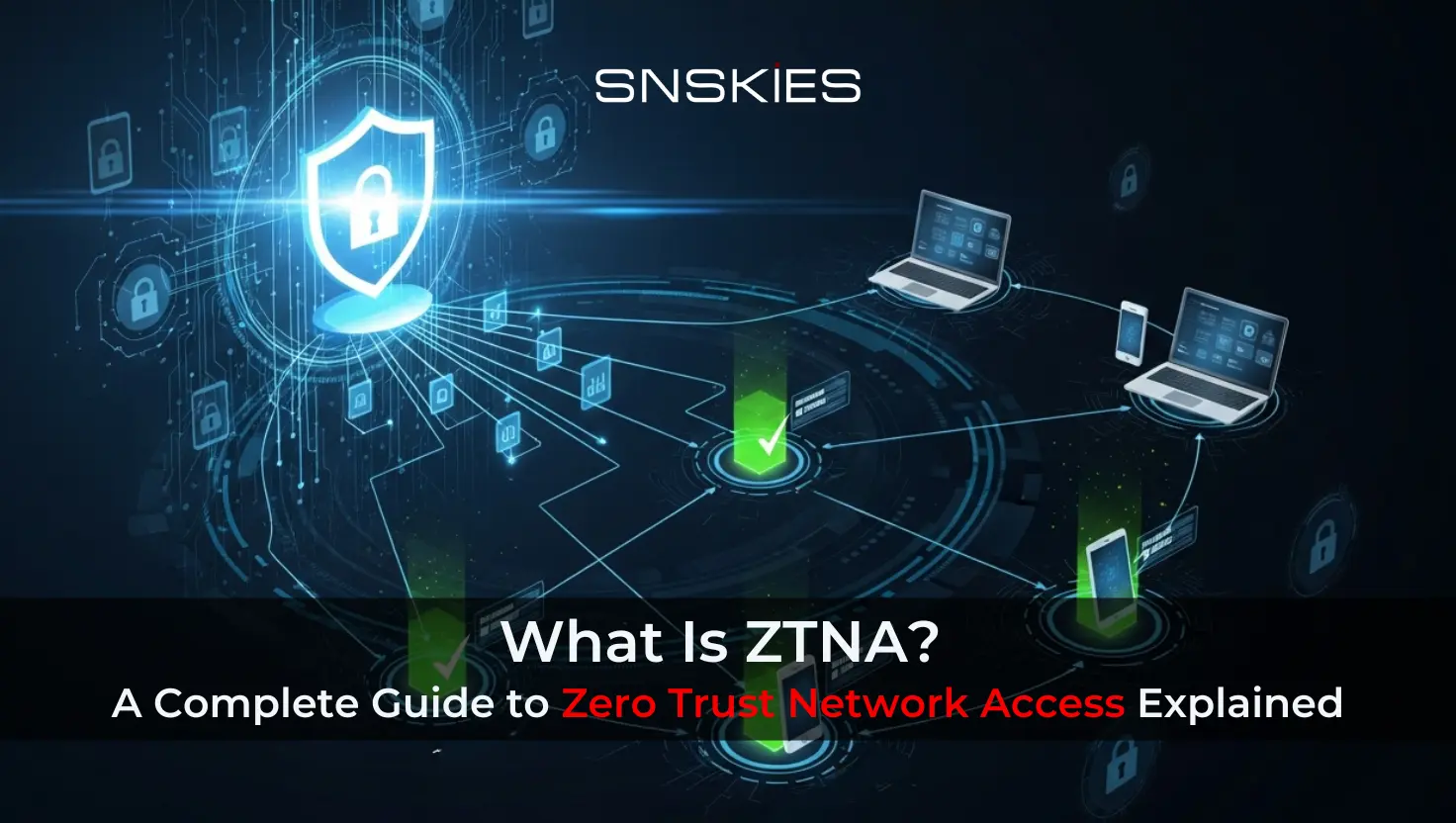- Articles
Cloud Network & AI Security in KSA: Secure Digital Transformation
- Articles
Cloud Network & AI Security in KSA: Secure Digital Transformation
- Articles
- September 25, 2025
Cloud Network Security in KSA
Saudi Arabia is rapidly becoming a global hub for digital innovation, cloud adoption, and artificial intelligence. With the ambitious goals of Vision 2030, businesses and government entities are transitioning toward cloud-based infrastructures to boost efficiency, scalability, and innovation. However, this digital acceleration also brings heightened cybersecurity challenges.
Here’s where Cloud network security and AI cloud security step in. Together, they form the backbone of Saudi Arabia’s secure digital transformation, ensuring sensitive data, financial transactions, and national assets remain protected in an era of advanced cyber threats.
The Growing Demand for Cloud Adoption in Saudi Arabia
Cloud services are no longer a choice but a necessity for organizations across sectors in the Kingdom. According to industry reports, Saudi Arabia’s cloud market is expected to surpass $10 billion by 2030, driven by investments from STC Cloud, Oracle, Google Cloud, and Huawei Cloud.
This surge demands robust security frameworks to protect against cyberattacks targeting financial institutions, government projects, and healthcare providers.
Why Cybersecurity is a National Priority under Vision 2030
Cybersecurity is at the core of Vision 2030’s digital economy strategy. Saudi Arabia ranks among the top 5 globally in the Global Cybersecurity Index (GCI), reflecting the Kingdom’s commitment to safeguarding its critical infrastructure. Cloud network security and AI-driven defenses are essential to maintaining this leadership.
Understanding Cloud Network Security
At its core, cloud network security ensures that applications, data, and services hosted in the cloud remain secure from cyberattacks, unauthorized access, and insider threats.
Core Components of Cloud Network Security
Firewalls and Intrusion Detection Systems
These act as the first line of defense, filtering malicious traffic and identifying suspicious activities before they compromise systems.
Identity and Access Management (IAM)
IAM solutions ensure that only authorized users can access sensitive data. Multi-factor authentication (MFA) and role-based access are now standard in Saudi organizations.
Data Encryption and Privacy Controls
With data sovereignty laws requiring local hosting in KSA, strong encryption protocols safeguard information during storage and transmission.
Role of AI in Cloud Security
Artificial intelligence is reshaping cybersecurity by enabling proactive, adaptive, and intelligent defenses.
AI-Powered Threat Detection
Machine learning models analyze massive volumes of network data, identifying anomalies that traditional systems may miss.
Automated Incident Response and Risk Mitigation
AI can automatically contain threats by isolating affected workloads and triggering alerts for IT teams.
Predictive Analytics for Cyber Defense
AI predicts future cyberattacks based on past patterns, allowing Saudi businesses to prepare before threats materialize.
Cloud Security Challenges in Saudi Arabia
Despite rapid adoption of cloud solutions, Saudi organizations face several challenges in ensuring cloud network security and AI cloud security.
1. Regulatory and Compliance Complexity
Saudi Arabia has strict cybersecurity frameworks, including the CITC Cloud Computing Regulatory Framework, the National Cybersecurity Authority (NCA) guidelines, and the SAMA Cybersecurity Framework for financial institutions. Businesses often struggle to align their operations with multiple overlapping requirements.
2. Data Sovereignty and Local Hosting Requirements
Under Saudi law, certain types of sensitive data must remain hosted within the Kingdom. Global cloud providers must establish local data centers, which can limit options for multinational firms.
3. Evolving Cyber Threats
Hackers are deploying sophisticated AI-driven attacks. Cloud infrastructures hosting financial, healthcare, and government data in Saudi Arabia are prime targets for ransomware, phishing, and insider threats.
4. Skills Gap in Cybersecurity Workforce
Although Saudi Arabia is investing heavily in upskilling IT professionals, there is still a shortage of cloud security specialists who understand both advanced AI solutions and local regulatory frameworks.
5. Industry-Specific Risks
- Banking: High risk of fraud and financial data breaches.
- Oil & Gas: Critical infrastructure targeted by state-sponsored attacks.
- Healthcare: Patient data privacy under constant threat.
FAQs About Cloud Network & AI Cloud Security
Cloud network security protects sensitive government, business, and consumer data stored in cloud systems. In KSA, it supports Vision 2030 goals by ensuring trust in digital transformation initiatives.
AI provides real-time threat detection, predictive analytics, and automated responses, allowing organizations to stay ahead of cybercriminals.
Saudi Arabia follows CITC Cloud Framework, NCA cybersecurity guidelines, and SAMA regulations for financial institutions. These ensure data sovereignty, compliance, and strong security measures.
Yes. AI-driven solutions are scalable and cost-effective, making them ideal for small and medium enterprises seeking affordable, yet robust security.
The main threats include ransomware attacks, data leaks, phishing, insider threats, and compliance challenges related to local data-hosting laws.
They can adopt Zero Trust models, enforce employee training, use strong encryption, and partner with local cloud providers aligned with Saudi regulatory standards.
Recent Post
- All Posts
- Articles


